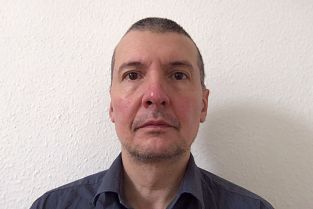The 5-year project, titled NEUROMETA, will focus on natural neuroactive mechanical metamaterials. The project will develop new concepts of materials made with natural biobased and biological (living) entities that are able to perform like an artificial neural network and adapt their capacity of bearing loads and functionalities with the surrounding environment.
The natural neuroactive mechanical metamaterial will exploit the intrinsic functionalities of piezoelectricity, hygromorphism and thermomechanical actuation existing in natural fibres, wood and spider silk combined with activation mechanisms from bacteria and enzymes.
During the last decade metamaterials have been developed and used for multiple purposes, such as morphing of aircraft structures; internal prothesis for implants; to increase comfort in shoes; and in helmet and cot liners to increase energy absorption during impact to decrease the risk of traumatic brain injury.
To date, these new classes of metamaterials have been fossil-based – no similar types of materials have been made from bio-based and renewable sources. An ambition of NEUROMETA is to use natural fibres from resources existing in the UK, Europe, South America, Asia and Africa to produce these paradigmatic metamaterials locally and in a sustainable way.
Scientists are currently not able to make these materials actuate by themselves and adapt to changes of the environment in an autonomous way. The NEUROMETA project will aim to build futuristic classes of materials – all made from natural, bio-based resources – that are able to mimick in simple ways how the human brain memory works to adapt their shape and performances to different loading and environmental conditions.
"We could make structures for buildings that self-adapt their orientation and shape to receive the most of the sunlight at different times of the day and the year and modify their stiffness, thermal and seismic characteristics with the seasons and climate change.
It could also be possible to make lightweight structures out of biobased materials for airframe, cars and ships that self-learn how to modify their stiffness, shape and mechanical performance to resist repeated and fatigue loads, a critical issue for transport applications.
We could even make clothes that understand how we move, sit and react to stimuli during our daily lives, and provide us with desired levels of comfort. The clothes could autonomously help us to reach "correct" postures and understand the right moment to release drugs", lead researcher, Professor Fabrizio Scarpa from the Bristol Composites Institute, lists potential future benefits of this research.
The project builds on the work on auxetics, metamaterials and bio-based composites Professor Scarpa has carried out over the last 15 years. These research activities have been done in collaboration with groups around the world, but also via teamwork with colleagues from the Bristol Composites Institute.
"The work on metamaterials and kirigami/origami in particular could not have been done without the active involvement of academics across the three Bristol Composites Institute themes. I have to thank the fantastic collaborators I have worked with over the years and my wonderful family for the continuous support they have given me. I would not have been able to get this award without them", Professor Scarpa concludes.
Professor Scarpa will be working with Professor Adam Perriman from the University of Bristol’s School of Cellular and Molecular Medicine and Professor Bipin Kumar from the Indian Institute of Technology in Delhi.
Other collaborators are at the Technical University of Munich, the Federal University of Sao Joao Del-Rei in Brazil, and the University of Guelma in Algeria.
More Bristol Composites Institute news.
Return to Bristol Composites Institute homepage.
